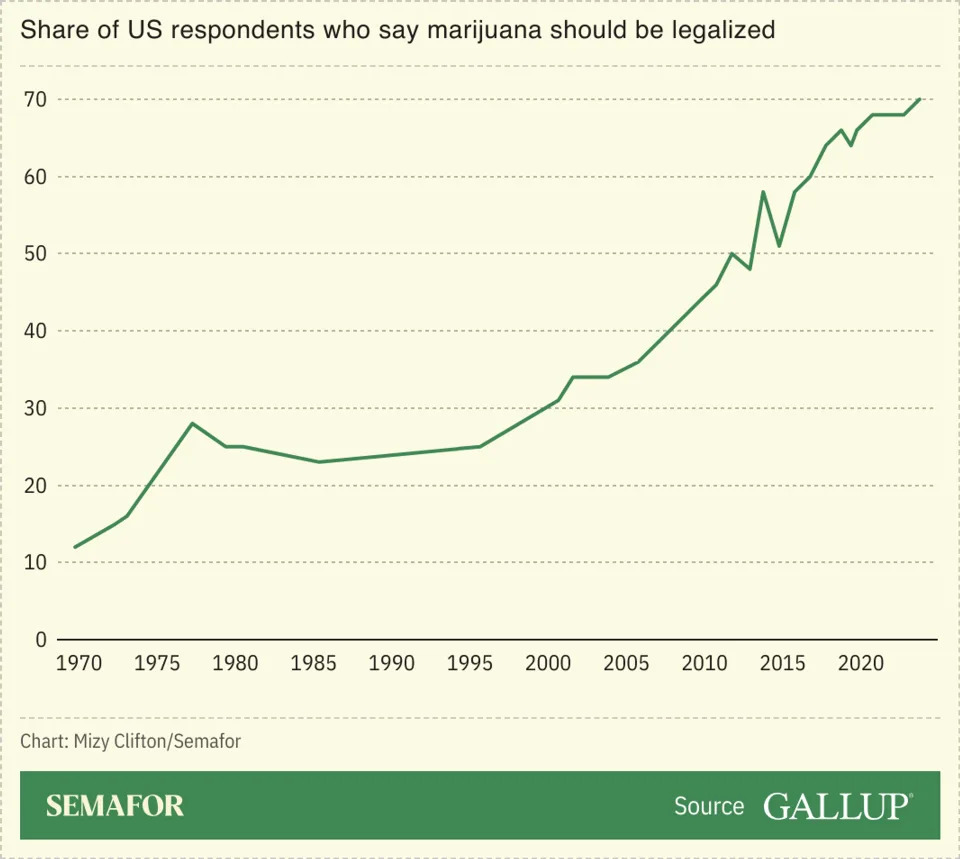Maryland governor pardons thousands of marijuana convictions
Insights from The Washington Post, The Appeal, and The Bulwark
The News
The Governor of Maryland Wes Moore signed an executive order Tuesday pardoning more than 170,000 people convicted of low-level marijuana offenses, citing “decades of harm caused by the war on drugs” and the disproportionate targeting of people of color.
Maryland legalized recreational marijuana for people aged 21 and over in 2023, but the Democratic governor said the legacy of criminalization remained.
Moore’s pardons follow those of US President Joe Biden, who issued similar pardons to people convicted of low-level federal marijuana offenses in 2022. Besides Maryland, nine states, as well as multiple local city governments, have forgiven thousands of old marijuana convictions in recent years, according to the National Organization for the Reform of Marijuana Laws.
SIGNALS
Moore’s mass pardon doesn’t go far enough, campaigners say
Governor Moore’s action will expunge some 40,000 people’s criminal records, according to The Washington Post. But the pardons don’t automatically mean that a person’s entire criminal record will be wiped clean nor that they will be released from incarceration.
Pardons “do not alleviate the collateral consequences of convictions,” the executive director of the Last Prisoner Project argued in The Appeal. Moore’s mass pardon also does not apply to convictions of possession with an intent to distribute, the executive director of the University of Baltimore’s Center for Criminal Justice Reform said — an issue that the public policy director of ACLU Maryland has argued needs to be explicitly addressed in pardon and reform measures.
Donald Trump may be ‘boxed into a corner’ on marijuana

About 70% of Americans support legalizing marijuana to some extent, according to a Gallup poll from October 2023 — but Republican voters are among demographic groups most sharply split on the issue. And the presumptive Republican presidential nominee Donald Trump has so far been reluctant to take a side, the BBC’s Washington correspondent noted.
Trump might not be able to hold out for much longer, though, and could instead find himself “boxed into a corner,” a writer at The Bulwark argued: While the slice of Trump’s base that is older and more conservative is largely opposed to legalization, younger voters and those he hopes to bring on side in this election cycle are broadly in favor.
–



